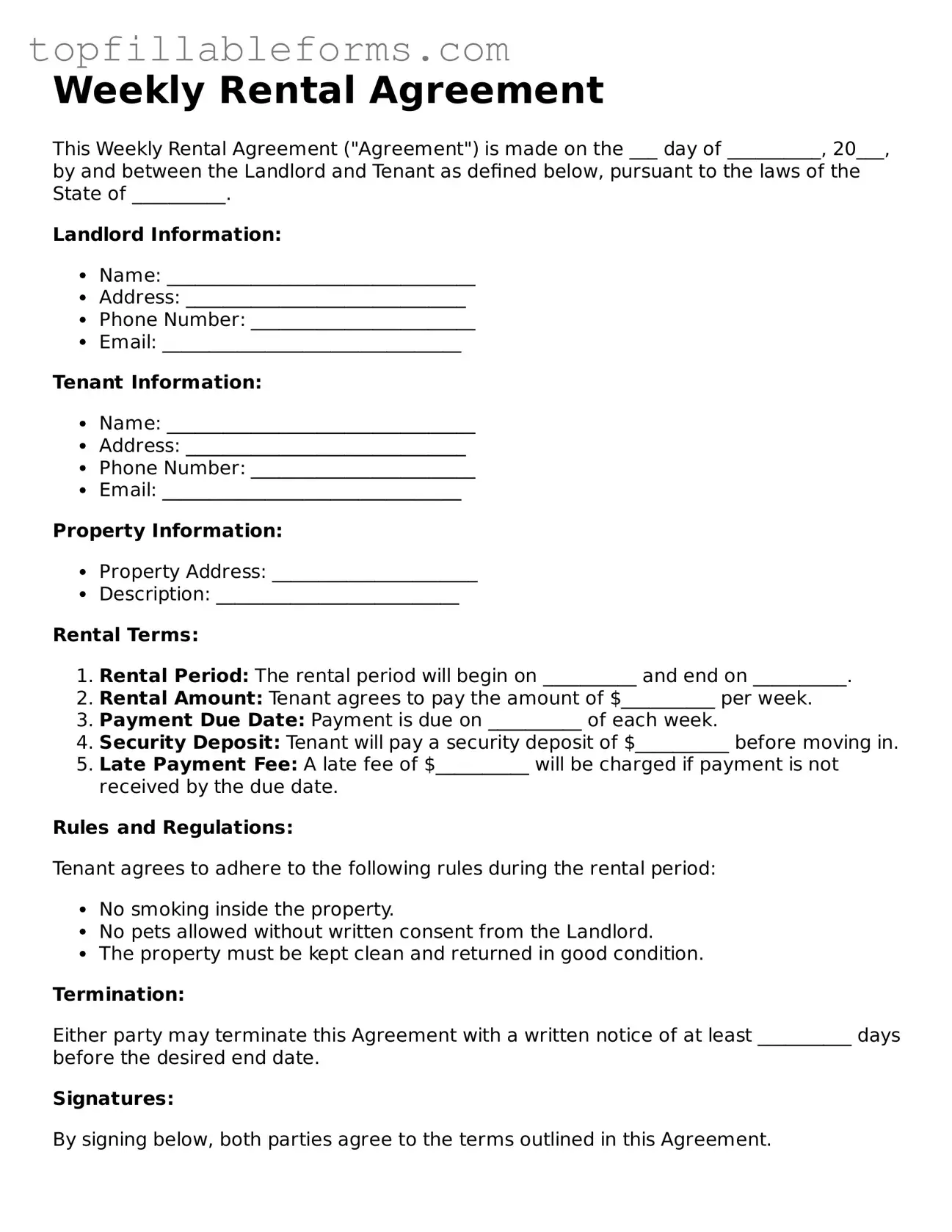Free Weekly Rental Agreement Form
A Weekly Rental Agreement is a legal document that outlines the terms and conditions between a landlord and a tenant for a rental property leased on a weekly basis. This agreement serves to protect the rights of both parties while clearly defining responsibilities related to rent, maintenance, and occupancy. Understanding this form is essential for anyone involved in short-term rentals, ensuring a smooth and fair rental experience.
Open Weekly Rental Agreement Editor Here

Free Weekly Rental Agreement Form
Open Weekly Rental Agreement Editor Here
Finish the form now and be done
Finish your Weekly Rental Agreement online by editing, saving, and downloading fast.
Open Weekly Rental Agreement Editor Here
or
▼ PDF File
